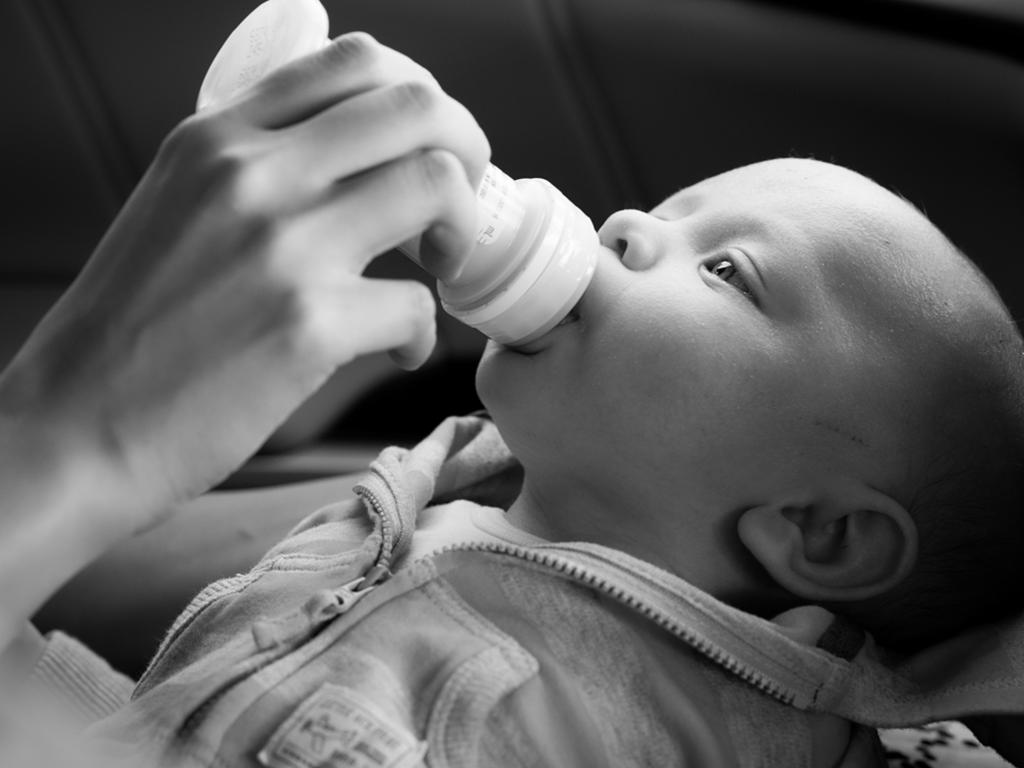
10 Jun CDC Guidelines for the safe preparation and storage of breast milk.
The Centers for Disease Control and Prevention (CDC) provides guidelines on breastmilk storage to ensure the safety and quality of breastmilk. It is recommended to store breastmilk in clean containers with tight-fitting lids made of BPA-free materials. The milk can be stored at room temperature for up to four hours, in the refrigerator for up to four days, and in the freezer for up to six months. It’s important to label the milk with the date and time that it was pumped to ensure that the oldest milk is used first. Additionally, breastmilk should never be heated in a microwave as it can create hot spots that can burn the baby’s mouth. The CDC guidelines aim to promote safe and healthy practices for breastfeeding moms and their babies.
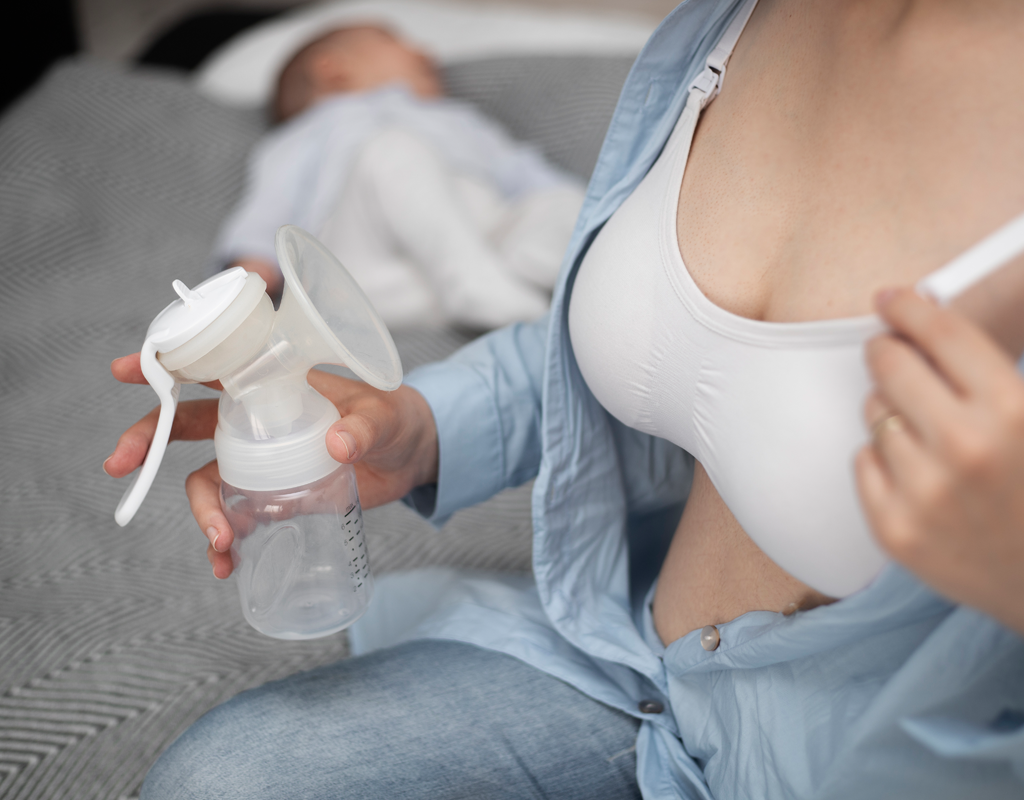
Preparation:
1 – Always wash your hand before expressing or handling breast milk.
2 – Use clean pumps and storage containers.
3 – Label containers with the date and time of pumping session.
4 – Use breast milk within 24 hours if stored at room temperature (up to 77°F or 25°C)
If transporting breast milk, use a cooler with ice packs to keep it at safe temperature.
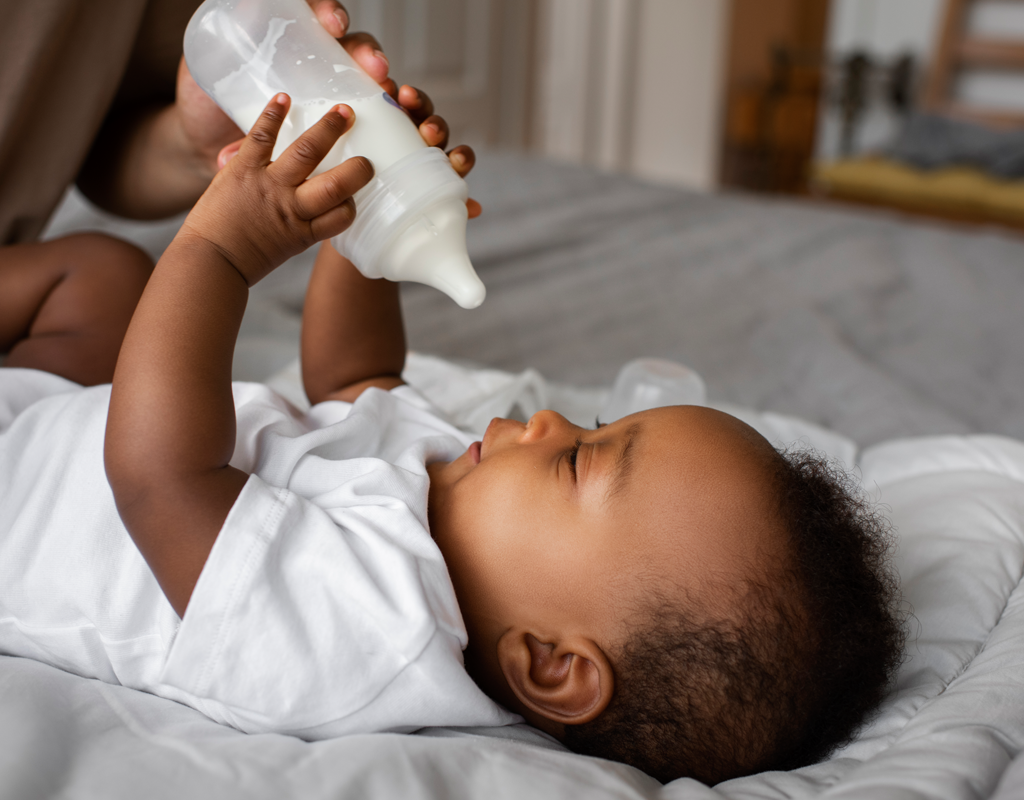
Storage:
1 – Use clean containers with tight fitting lids for storage.
2 – Store breastmilk in the back of the refrigerator or freezer for optimal conditions.
3- Breastmilk can be stored in the refrigerator for up to 4 days, in the freezer for up 6 months and deep freezer for a year.
4 – When freezing breast milk, use bags made for breast milk storage, and leave some space at the top to allow for expansion during freezing.
5. Never refreeze thawed breastmilk.
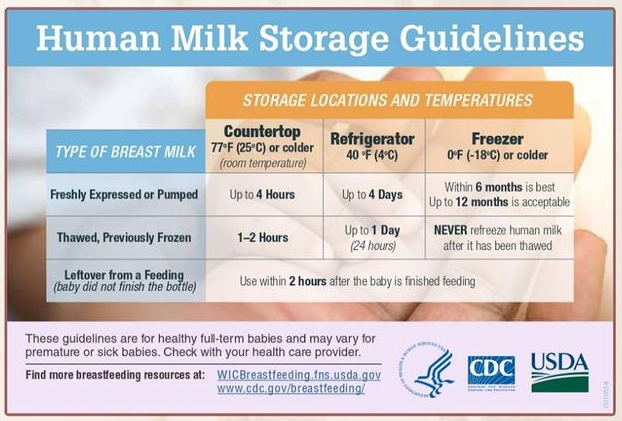
Breastfeeding can also promote the production of melatonin and helps regulate sleep-wake cycles. Breastfeeding releases oxytocin, which can induce feelings of relaxation and sleepiness for both mother and baby. In fact when a brestfeeding mother and baby are in close contact, their breathing and heart rates synchronize, helping them both to relax and sleep more peacefully.
It’s essencial to follow proper breast milk storage and handling guidelines to maintain the freshness and safety of the milk. Contamination due to improper handling can lead to illness in the baby. Consistently using clean containers, labeling, and appropriate refrigeration can prevent contaminations and provide all the milk’s tutorial benefits, keeping the baby healthy.

Dayane Lima
Newborn Care Specialist & Full Spectrum Doula - Lima Newborn Services LLC
Dayane Lima is the founder and CEO of Lima Newborn Services LLC. She is dedicated to providing comprehensive support and education for families during pregnancy and early parenting.
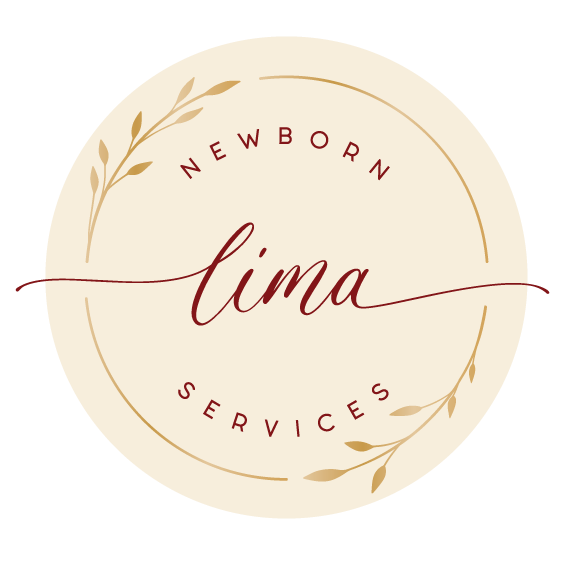
 EN
EN  PT
PT
No Comments